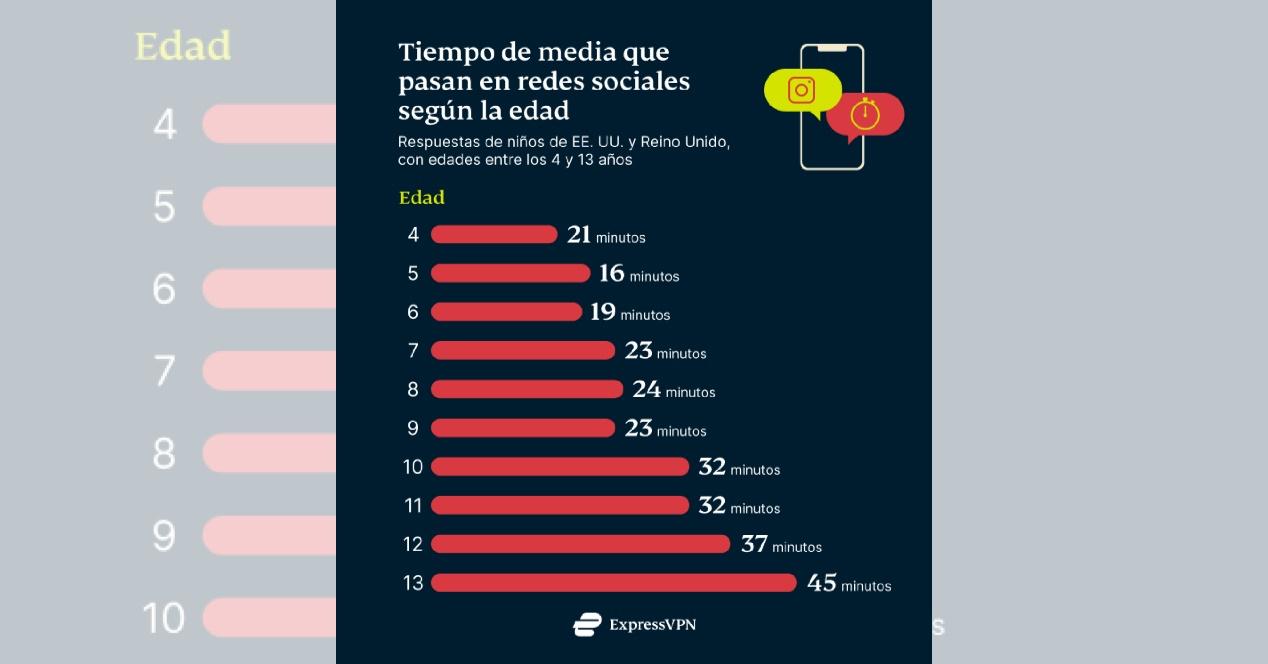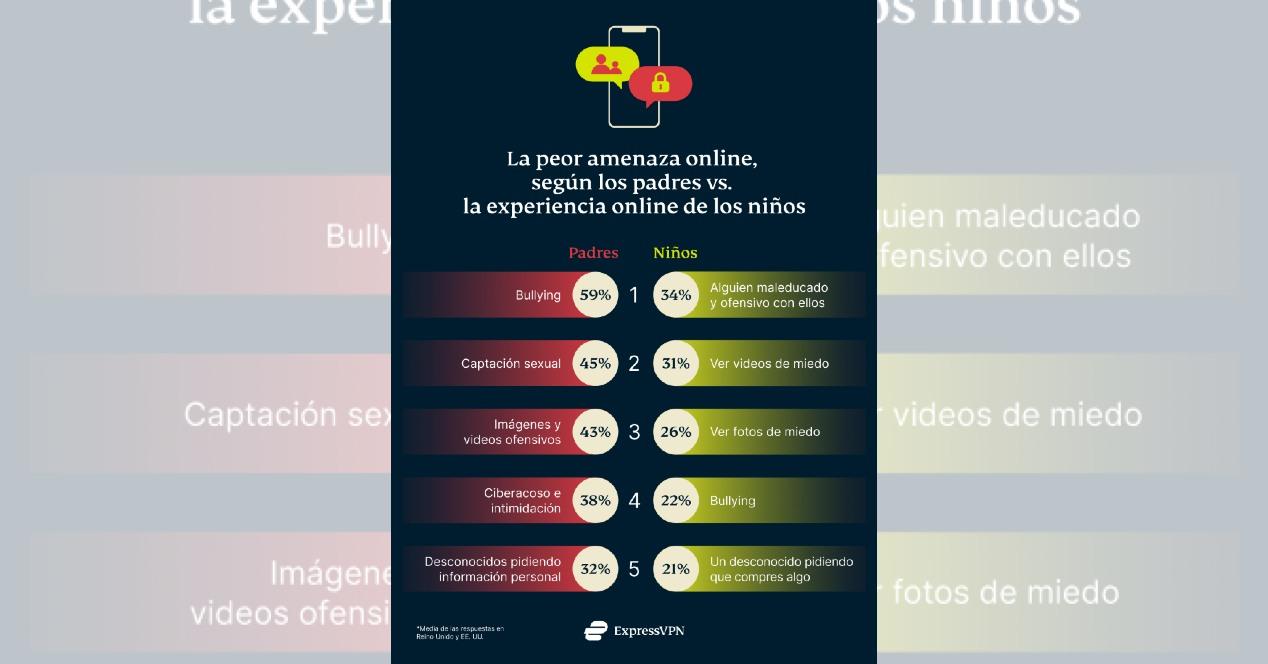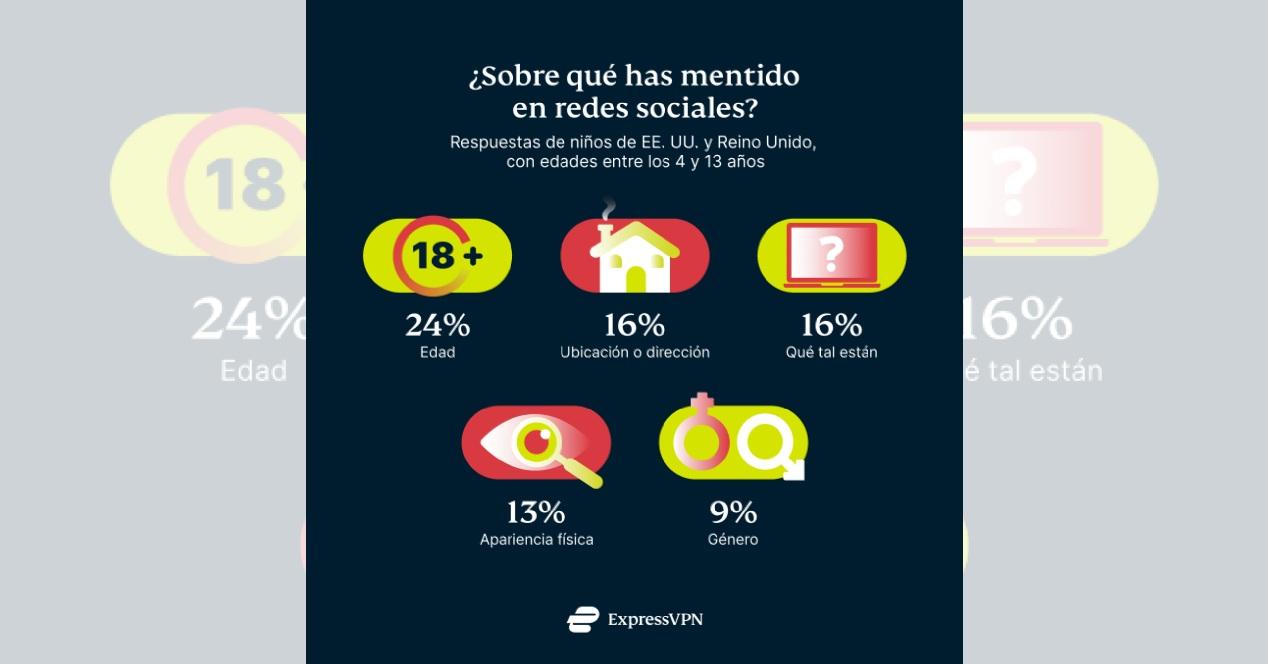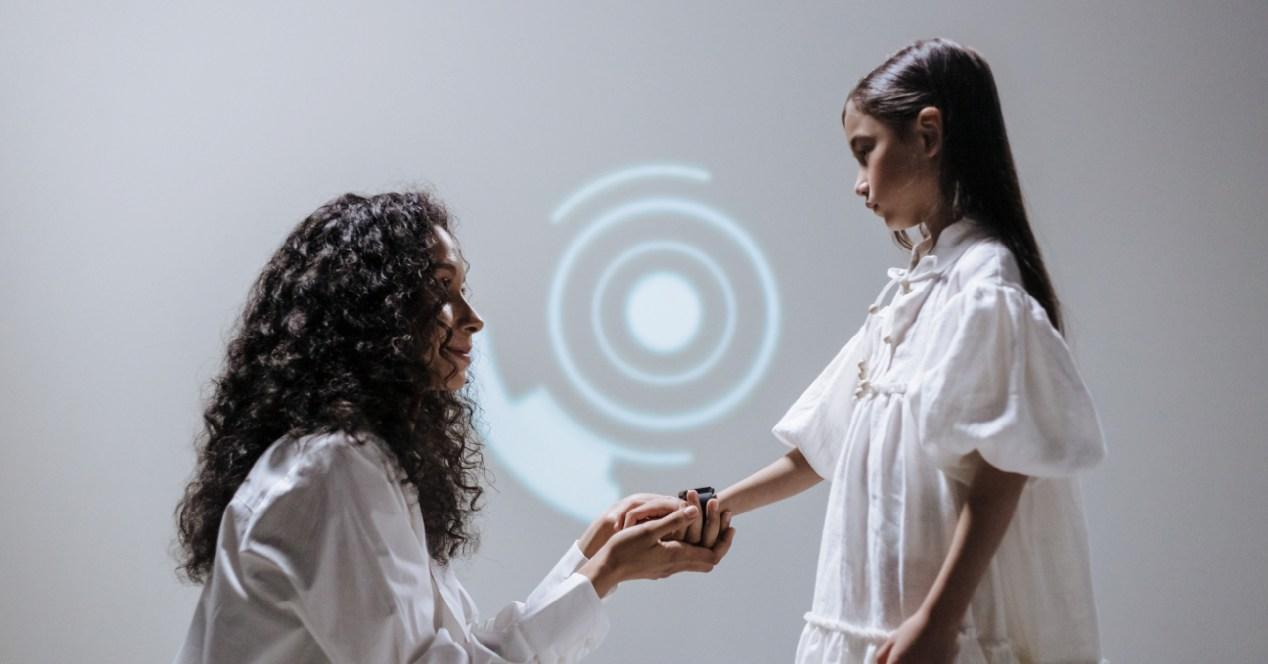Possibly you have ever been surprised by the large amount of time that children spend on social networks, using the mobile and viewing content on it. To some it will seem good, to others not so much, but it is neither more nor less than the future we are heading towards. The question we all ask ourselves is, why don’t parents control it? Is there a real danger in the network?
It is clear that children in recent years have made greater use of the Internet, which of course does not stop growing, which may scare some of them. What is true is that most parents try to control what is done, although this is not always the case. Now, thanks to a study conducted by ExpressVPNwe can check what behavior they have more than 2,000 fathers and mothers surveyed to control what their children do with the mobile.
Is internet use really controlled?
First of all, it is important to point out that the parents who have been surveyed have children between the ages of 4 and 13, just the stage before they are teenagers and in which the internet opens their hand a bit. It begins to scare to see how 53% of these American and English parents admit that their children use social networks, with 28 minutes on average a day, something certainly worrisome. What does reassure us is that the older they are, the more they obviously use their mobile phones, so the average number of minutes goes up.

On the other hand, as far as other consumer content is concerned, 87% of children consume YouTube or Netflix in the same way that 80% play online with other people.
Now is when the big question comes, why isn’t this really controlled? There are parents who do not control their children’s activity, 54% admit that they do control it at least once a day, to find out what they are doing. The methods by which this surveillance is carried out are known to all, checking the phone, tablet, Internet history… in the aspect in which parents are most reticent is when it comes to create social media accounts, where we can already expose children to greater problems. And in fact, this study also talks a lot about problems.
The dangers that children are exposed to on the Internet
It is known by all that the Internet, in a way, is not a secure site; yes, if you’re careful it’s safe, but a child doesn’t fully understand the barriers that exist on the net. In fact, in recent years there have been cases of cyberbullying or privacy threats that of course are reflected in the ExpressVPN study.
It is said that 59% of the parents surveyed fear the most is your children being harassed online, a case that occurs very often and has caused numerous tragedies. Beneath this is the possibility that children are being manipulated by some kind of online predator or that they may find content that is not appropriate for them. It is striking that the least worrying parents is that strangers ask for personal information.

On the other hand, the children have also talked about what they would like and what they would not find on the internet and among the most answered is to see scary photos and videos, occupying the first place the fact that someone is rude to them. In fact, cyberbullying occupies only 4th place, something that makes us see that children are not fully alert on the Internet and are not up to date with the risks that it can entail.
The fear increases when we see that 22% of the children surveyed admits to having been a victim of cyberbullyingwhile 17% of them admit to having spoken to strangers who have asked them personal information such as the school they attend.
If there is something that is going to help us as parents to detect the possible dangers that our children are subjected to day after day and to which perhaps we should pay more attention is the different platforms in which it is easier for them to experience negative situations, the which change between the US and the UK, being the following:
In United States
- YouTube (43%)
- Facebook (35%)
- TikTok (28%)
- Roblox (27%)
- Instagram (26%)
In the United Kingdom
- Roblox (34%)
- YouTube (34%)
- TikTok (25%)
- Fortnite (21%)
- Facebook (16%)
Despite these data, children do not fully see the danger in social networks, although they are used to lying on them, where we can see that many children lie about their age, location or how they feel. In fact, it is assumed that one in six children has lied online.

The best advice you can give your children
At the time of being parents, nobody indicates what is right or what is wrong or what we should or should not advise our children despite the fact that we always give 100% so that the best advice from us always comes out. That does not mean that we are sometimes wrong, especially in terrains as swampy as the internet, where you never know what you are going to find and there is always something new.
In this way, there are certain aspects in which it will always be good for us to influence the internet and in which we must educate our children so that they avoid having possible problems when using the internet.
Parental control is paramount
As much as sometimes it may seem excessive or even exaggerated to exercise strict control over what our child sees and hears on the internet, and it is important to establish good parental control so that I cannot be in danger on the internet and let us know at every moment where our son is going,
Parental control not only includes the mobile, but also refers to the browsing histories to know what your child is looking for on the internet, the applications they use as well like the games you play and with whom, both on the mobile and if they have a console

Take care of the safety of what is seen
This is a matter that has been talked about a lot, because the gateway to our virtual world is really our username and password, both of which can reveal a lot of information about us. The password for example, besides being complicated, must be secure and inviolable.
Beyond the passwords, the data we give on the network is also important, so that we do not give more data than is due. For example, if your son is called José Pérez, that his username not Joselito Perez07 or derivatives, which can cause the person in front of you to already know the identity of our child.
Talk about the dangers of the internet
If there is something we should do with our children, it is to be honest and speak clearly about the dangers that exist on the internet and within the network, explain that we should not trust everything they see. There are fake profilespeople who claim to be others and so on, with endless possibilities that arise and that can endanger the integrity of your children.
Tell him about those people who create fake profiles, about all those they play with online and who may not be who they say they are, who do not reveal their identity or family information. And above all, give him confidenceso that if the time comes when something bad happens, they tell you about it right away.
Help yourself with a VPN
Of course, if there is a possibility that will help us to make Internet browsing as safe as possible, that It’s the one from the VPN, a virtual private network that gives us added security on the network. This will keep your family protected when they are online, in addition to encrypt all data Of the same.
As if that were not enough, the anonymity of those who browse will increase by providing each device with a different IP address in another location.












